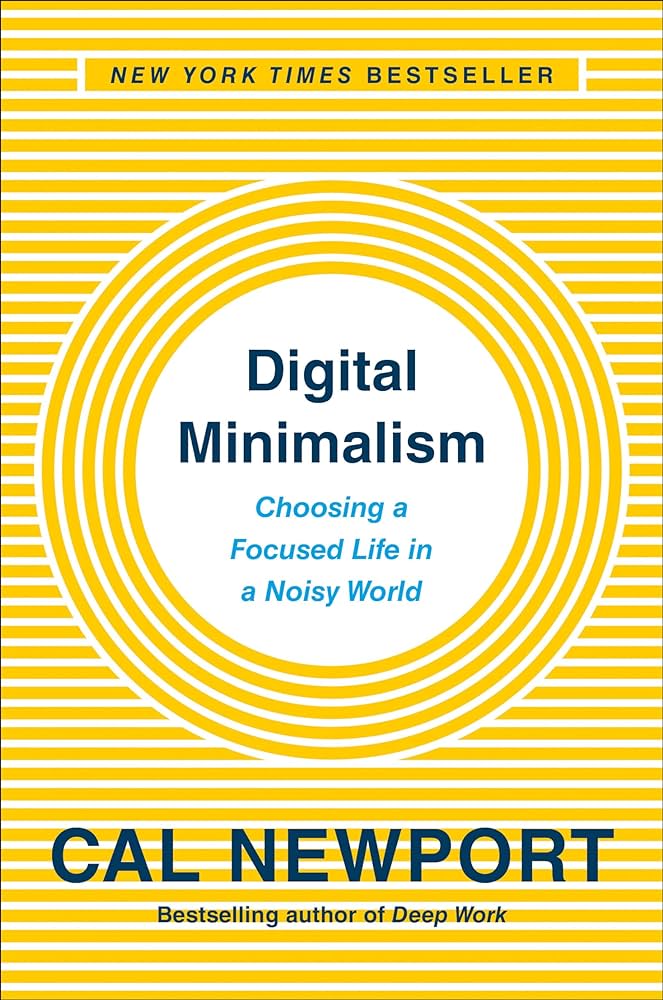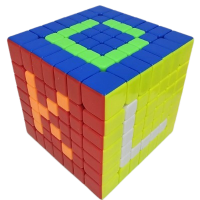Digital Minimalism offers a thoughtful philosophy for navigating addictive technology. With smartphones leading the way, we have countless tech tools at our fingertips. While most can be very useful, many are designed to exploit psychological forces to capture your attention for as long as possible. This book is about reclaiming your attention.
Cal defines Digital Minimalism as “a philosophy of technology use in which you focus your online time on a small number of carefully selected and optimized activities that strongly support things you value, and then happily miss out on everything else.” The key is to intentionally and proactively decide how and when you will use specific technology, rather than allowing an app’s algorithms to decide for you.
By adopting this approach, we create space for high-quality leisure habits, where our interests guide us to enjoyably produce something meaningful. While we need to make time for low-quality leisure as well, a high-quality leisure helps us recharge while also being productive. Writing this blog is one of my ongoing high-quality leisure habits which I fit in on the train to and from work.
Technology is deeply integrated into my life, yet this book has helped me carefully limit its overreach. For example, most of my phone’s apps are disabled during normal working hours. Ironically, most people will see this post scrolling via LinkedIn’s algorithm. If you find this helpful, consider subscribing to the blog instead.
You should read this book if you…
- want a productive philosophy to interact with technology
- default to checking social media when you’re bored
- feel like you have no time to pursue your interests
Additional Information
Year Published: 2019
Book Ranking (from 1-10): 10 – Superb – Changed the way I live my life
Ease of Read (from 1-5): 2 – Quick read
Key Highlights
- People don’t succumb to screens because they’re lazy, but instead because billions of dollars have been invested to make this outcome inevitable
- Addiction is a condition in which a person engages in use of a substance or in a behavior for which the rewarding effects provide a compelling incentive to repeatedly pursue the behavior despite detrimental consequences
- Digital Minimalism A philosophy of technology use in which you focus your online time on a small number of carefully selected and optimized activities that strongly support things you value, and then happily miss out on everything else
- By working backward from their deep values to their technology choices, digital minimalists transform these innovations from a source of distraction into tools to support a life well lived
- Principle #1: Clutter is costly. Digital minimalists recognize that cluttering their time and attention with too many devices, apps, and services creates an overall negative cost that can swamp the small benefits that each individual item provides in isolation. Principle #2: Optimization is important. Digital minimalists believe that deciding a particular technology supports something they value is only the first step. To truly extract its full potential benefit, it’s necessary to think carefully about how they’ll use the technology. Principle #3: Intentionality is satisfying. Digital minimalists derive significant satisfaction from their general commitment to being more intentional about how they engage with new technologies. This source of satisfaction is independent of the specific decisions they make and is one of the biggest reasons that minimalism tends to be immensely meaningful to its practitioners
- Use operating procedures when confronting a technology that’s largely optional, with the exception of a few critical use cases. These procedures specify exactly how and when you use a particular technology, allowing you to maintain some critical uses without having to default to unrestricted access
- Solitude is about what’s happening in your brain, not the environment around you. Accordingly, they define it to be a subjective state in which your mind is free from input from other minds. Solitude requires you to move past reacting to information created by other people and focus instead on your own thoughts and experiences—wherever you happen to be
- Writing a letter to yourself is an excellent mechanism for generating exactly this type of solitude. It not only frees you from outside inputs but also provides a conceptual scaffolding on which to sort and organize your thinking
- This practice suggests that you keep your phone in Do Not Disturb mode by default. On both iPhones and Android devices, for example, this mode turns off notifications when text messages arrive. If you’re worried about emergencies, you can easily adjust the settings so calls from a selected list (your spouse, your kid’s school) do come through. You can also set a schedule that turns the phone to this mode automatically during predetermined times
- The most successful digital minimalists, therefore, tend to start their conversion by renovating what they do with their free time—cultivating high-quality leisure before culling the worst of their digital habits
- Leisure Lesson #1: Prioritize demanding activity over passive consumption. Leisure Lesson #2: Use skills to produce valuable things in the physical world. Leisure Lesson #3: Seek activities that require real-world, structured social interactions
- It’s important to know that the “attention economy” describes the business sector that makes money gathering consumers’ attention and then repackaging and selling it to advertisers
- I’m not talking about occasionally blocking some sites when working on a particularly hard project. I want you instead to think about these services as being blocked by default, and made available to you on an intentional schedule

Discover more from The Broader Application
Subscribe to get the latest posts sent to your email.
